What effective leaders do
September 4 2014
A leader’s responsibility is to achieve total alignment of individuals, departments and organizational purpose.
| By Gene Ference, Ph.D HNN columnist Editor’s note: This article is based on interviews with luxury hotel executives, primary research and the author’s views.
Few organizations operate at peak performance. Most companies lack an internal culture in which structure, processes, practices and resource allocations are optimized. In short, efficiencies and effectiveness operate at less-than-peak performance levels.
In today’s hyper-competitive world, guests paying prime rates expect the physical property to be picture perfect as well as the guarantee of unique, one-off experiences that generate the ultimate in fond memories. Meeting and exceeding guest expectations has become a dynamic process unto itself.
A leader’s responsibility Effective leaders develop organizational alignment to a high degree of precision where strategic documents serve as the foundation for service culture: vision and mission statements, core values, guiding management principles and service standards effectively create organizational momentum.These elements provide vertical thrust to the hotel’s culture; their contents are continuously cascading down and rising up from within the organization to create its essence and spirit-of-being.
Ultimately, a leader’s responsibility is to achieve total alignment of individuals, departments and organizational purpose. Daily monitoring of these performance elements and actively keeping them out in front of team members aids in clarifying the what’s, how’s and why’s of the service mission. To energize these strategic documents and keep them top-of-mind with all team members:
At this point, you might be saying to yourself, “This is just common sense.” But common sense isn’t common and might not be common practice, either. The key is to be systematic and continuous in reinforcing the expectations identified in your service infrastructure.
Being clear on standards is crucial to great leadership. For example, are your people merely selling single rooms and every-day menu items or are they upselling on behalf of the hotel? If they are just selling, they need to change their behavior and show they are interested in the hotel’s features, benefits and offers of different room types and rates. In successful properties, department heads teach the techniques of upselling, reading guests’ interests and going beyond expectations.
Guiding management Guiding management principles are vital to a strong service infrastructure. Unfortunately, they are often underdeveloped or overlooked. They comprise procedures that focus on how executive team members will manage themselves and others on a day-to-day basis. Leadership is about pursuing systematic and continuous improvement, enabling everyone to raise levels of efficiency and effectiveness.
If developed correctly, guiding management principles reinforce the service culture by being aligned with vision/mission and core values. There is no limit to the number of behavioral checkpoints that can be generated. A few examples follow.
We exceed product expectations by:
We build customer loyalty and high levels of repeat business by:
We ensure people feel welcome by:
We ensure high levels of trust by:
We ensure open communications by:
What effective leaders do Effective leaders develop personal style in coaching and mentoring others. One key to developing personal relations is realizing people generally do not care how much you know until they know how much you care. They determine whether to take your lead on their impressions of how much they perceive you to genuinely care about them. Generating positive, feel-good chemistry among co-workers and managers is a strong decision-making driver and a good reason why it is essential for every effective leader to have sound emotional intelligence.
In addition to the usual work relationship, employees want to be entertained and have fun while doing their jobs. This part ought to be mainly fun-filled but not inappropriate. Managers who lack this quality are likely to be questioned on their ability to lead people.
Successful leaders build 360-degree relationships by providing optimum direction, meaningful support and passionate team member engagement to create the best possible motivational environment, maximum performance and exceptional guest experience. Employees respond best if they are shown the benefit of their actions rather than just being informed to do something. People ask questions and seek answers regarding how to best accomplish something. They also are looking for the why’s of the task.
Leadership is being fully committed to achieving peak performance consistently throughout day-to-day operations; this is different than gaining commitment only on a philosophical level. Effective executive committees turn concept and theory into applied principles and how-to best practices. They provide visible support to all department heads and supervisors; they provide direction within the confines of the big-picture; they expect accountability for responsibility; and they generate a full-court-press to having everyone on the same page, pointed in the same direction.
What is the distribution for your team? You can begin by asking the following questions:
Dr. Gene Ference has developed Deliberate Cultures in the luxury hospitality industry since 1980. He is President of Ference Leadership and Strategy & Center for Survey Research – a global organizational development company – and has facilitated hundreds of meetings developing service infrastructure and executive leadership; he is an active member of the International Society of Hospitality Consultants (ISHC). |

